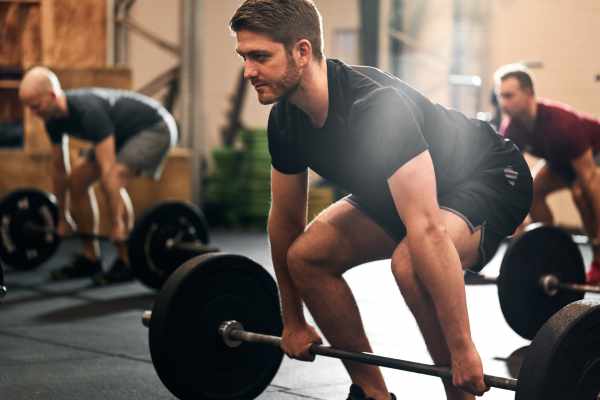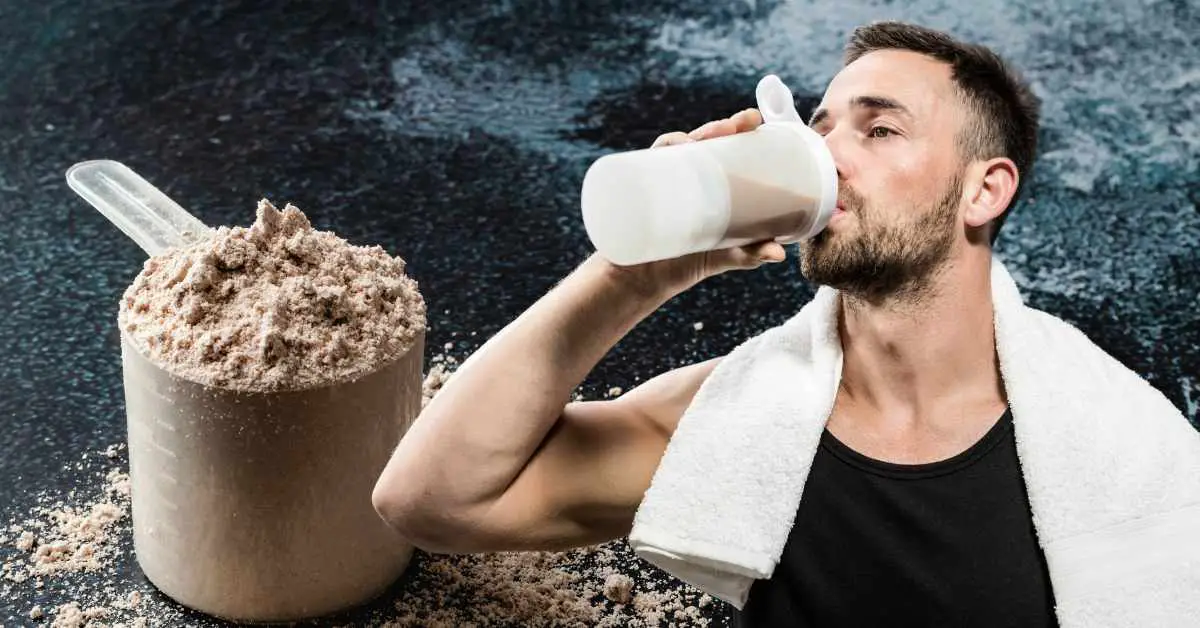As someone who enjoys working out and staying fit, I’ve often wondered are post-workout supplements worth it. Are they really necessary, or just another marketing gimmick?
In this article, I’ll explore the world of post-workout supplements and share my findings to help you decide if they’re worth adding to your fitness routine.

Understanding Post-Workout Supplements
Before diving into the big question, let’s first understand what post-workout supplements are.
“In a study involving weight training individuals, those who took whey protein supplements post-workout gained an average of 5.5 pounds more muscle mass over a period of 12 weeks compared to those who did not supplement.”
MUSCLE MASS GAIN
These products are specially formulated to provide your body with essential nutrients after exercise, aiding in muscle recovery, reducing inflammation, and replenishing depleted energy stores.
Some common post-workout supplements include protein powders, BCAAs (branched-chain amino acids), creatine, and glutamine, among others.
Be sure to read my recent reviews on the Best Greens Powders for Women Over 50.
The Science Behind Post-Workout Supplements

To determine if post-workout supplements are worth it, we need to look at the science behind their claims. Let’s break down some of the most popular post-workout supplements and see what research has to say about their effectiveness:
Protein Powders
Consuming protein after a workout is essential for repairing and rebuilding muscle tissue, which can be damaged during exercise.
Research supports the idea that consuming protein within 30 minutes to 2 hours after a workout can help promote muscle growth and recovery.
Protein powders, such as whey, casein, or plant-based options, can be a convenient way to meet this need, especially if you struggle to consume enough protein from whole foods.
I have been consuming a protein shake each day for several years. Since I don’t eat a lot of meat in my diet, I just want to be sure to maintain my muscle mass.
Athletes who regularly consumed post-workout supplements with a combination of protein and carbohydrates showed up to a 15% increase in endurance performance over a period of 8 weeks
ENDURANCE IMPROVEMENT
BCAAs
Branched-chain amino acids (BCAAs) consist of three essential amino acids: leucine, isoleucine, and valine. These amino acids play a crucial role in muscle protein synthesis and can help reduce muscle soreness after exercise.
Some studies have shown that taking BCAAs after a workout can reduce muscle soreness and improve recovery.
Some research suggests that consuming enough protein in your diet can provide you with the necessary BCAAs, making supplementation unnecessary for most people.
Creatine
Creatine is a naturally occurring compound found in your muscles that helps generate energy during high-intensity exercise.
Supplementing with creatine has been shown to increase strength, power, and lean body mass in both trained and untrained individuals.
While not specifically a post-workout supplement, creatine is often taken after workouts to help replenish depleted stores. Most research indicates that creatine is effective and safe when taken in recommended doses.
I have tried creatine and believe it helps. As my workout sessions shift to more strength training, I can feel the difference in my recovery when I use it.
Recent studies have shown creatine can help improve cognitive function, memory, and mental performance, especially in tasks requiring short-term memory and quick thinking.
Glutamine
Glutamine is an amino acid that plays a role in immune function and gut health. It’s also involved in muscle recovery and can be depleted after intense exercise.
Some studies suggest that taking glutamine after a workout can help reduce muscle soreness and speed up recovery.
The research on glutamine supplementation is mixed, and more studies are needed to confirm its effectiveness.
A study found that athletes who consumed post-workout supplements with protein and carbohydrates reported a 40% decrease in muscle soreness 24 to 72 hours after exercise compared to those who didn’t.
RECOVERY TIME
Post-Workout Nutrition: Supplements vs. Whole Foods
Now that we have a better understanding of the science behind post-workout supplements let’s discuss their role in comparison to whole foods.
While supplements can be convenient and offer a quick way to refuel after exercise, it’s important to remember that a well-balanced diet can provide all the necessary nutrients for optimal recovery and performance.
Consuming a meal or snack with a mix of protein, carbohydrates, and healthy fats within 2 hours after exercise can help support muscle repair, replenish glycogen stores, and reduce inflammation.
For example, instead of reaching for a protein shake, you could have a Greek yogurt parfait with fruit and granola or chicken and vegetable stir-fry with brown rice.
These whole food options not only provide essential nutrients for recovery but also offer additional vitamins, minerals, and antioxidants that can contribute to overall health.
Cost vs. Benefit: Is It Worth It?
The decision to invest in post-workout supplements ultimately comes down to weighing the costs against the benefits.
Supplements can be pricey, and for some people, the convenience and potential benefits may not justify the expense, especially if they’re already meeting their nutritional needs through a balanced diet.
If you’re on a tight budget or prefer to get your nutrients from whole foods, you might find that post-workout supplements aren’t worth the extra expense.
On the other hand, if you struggle to meet your protein needs or find it challenging to consume a meal or snack after exercise, post-workout supplements could be a convenient and helpful addition to your routine.
Consuming protein supplements post-workout can increase muscle protein synthesis by up to 25%. This is crucial for muscle repair and growth, especially after intense exercise sessions.
PROTEIN SYNTHESIS
Individual Needs and Goals
Another factor to consider when deciding if post-workout supplements are worth it is your individual needs and fitness goals.
For some people, such as competitive athletes, bodybuilders, or those with specific dietary restrictions, post-workout supplements might be a valuable tool to help them achieve their objectives.
For others, like recreational exercisers or those focusing on general fitness, a well-rounded diet, and proper hydration might be sufficient for recovery and performance.
Conclusion
So, are post-workout supplements worth it? The answer depends on your unique circumstances, fitness goals, and nutritional needs.
While research supports the benefits of some post-workout supplements, such as protein powders and creatine, a balanced diet and proper post-workout nutrition from whole foods can often provide the same benefits.
Before investing in post-workout supplements, evaluate your current diet and exercise routine to determine if supplementation is necessary. If you’re already meeting your nutritional needs through whole foods and staying consistent with your workouts, you may find that post-workout supplements aren’t essential for your fitness journey.
FAQ
What are post-workout supplements and why are they used?
Post-workout supplements are products designed to be consumed after exercising. They typically contain a blend of nutrients such as proteins, amino acids, vitamins, and minerals to aid in recovery, replenish energy stores, and support muscle repair and growth.
Do post-workout supplements really work?
The effectiveness of post-workout supplements can vary depending on the individual’s body, workout intensity, and the supplement’s quality and ingredients. Some studies suggest that certain supplements, like protein powders, can aid in muscle recovery and growth when used correctly.
What should I look for in a post-workout supplement?
Look for supplements that contain essential nutrients like protein (whey or plant-based), BCAAs (branched-chain amino acids), and carbohydrates. Also, consider any dietary restrictions or allergies you might have, and always check for third-party testing to ensure quality and safety.
Can post-workout supplements have side effects?
Yes, some individuals may experience side effects such as gastrointestinal discomfort, allergies, or interactions with medications. It’s important to follow dosage instructions and consult with a healthcare professional, especially if you have pre-existing health conditions.
How soon after my workout should I take a post-workout supplement?
It’s generally recommended to consume your post-workout supplement within 30 to 45 minutes after exercising. This timeframe, often referred to as the “anabolic window,” is believed to be optimal for nutrient absorption and muscle recovery.
Can I just eat food instead of taking a supplement after working out?
Absolutely. Whole foods can provide the same nutrients as supplements. Foods like lean protein, complex carbohydrates, and healthy fats are excellent for recovery. Supplements are just a convenient option for those who might not have the time or appetite for a full meal immediately after exercising.

Claudia Faucher is a fitness and lifestyle blogger who shares practical tips for women over 50 on staying active, stylish, and confident. As the creator of FitFab50.com and Beyond59.com, she covers topics like workout gear, beauty trends, and wellness routines. Claudia is passionate about helping others live their best life at any age.
